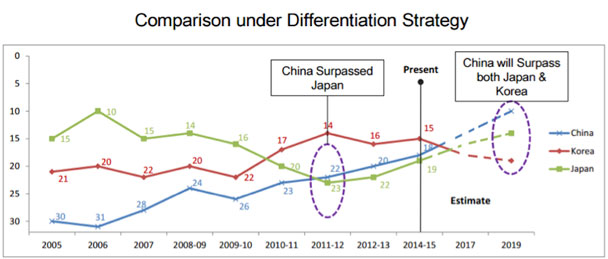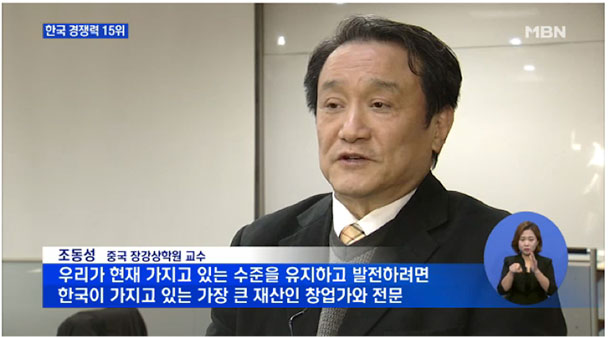The Institute for Industrial Policy Studies (IPS) and The Institute for Policy & Strategy on National Competitiveness (IPS-NaC) has revealed its ‘IPS National Competitiveness Research 2014-2015’. Unlike other national competitiveness studies, which are mainly designed for developed economies, the study suggests political solutions for developing countries.
The IPS National Competitiveness Research is known for its comprehensive and dynamic methodology that includes non-quantitative variables to better explain the increasingly complex nature of the world’s economy and national competitiveness. The study measures national competitiveness for both ‘cost strategy’ and ‘differentiation strategy.’
According to an article on the study by Korean news agency Yonhap News, China showed the highest competiveness in ‘cost strategy’ investigation. In the ‘differentiation strategy,’ China is ranked 16th while Singapore, Switzerland and Denmark respectively topped the list. Among the three northeastern Asian nations, China was ranked between Korea and Japan, which were in 15th and 19th, respectively.

Source: The Institute for Industrial Policy Studies (www.ips.or.kr)
The three countries have been ranked closely since 2005, but the ranking is likely to be reversed in the future. In spite of the highest rank among those countries, Korea has slipped since 2011. In comparison, China surpassed Japan in 2011, and is predicted to surpass both Japan and Korea in 2019.
The co-researcher Cho Dong-Sung, CKGSB Professor of Strategy, suggested maneuvers to improve competitiveness during an interview with MBN:
“To maintain the level today and develop further, we ought to develop more entrepreneurs and professional managers.”

Professor Cho Dong-Sung’s interview on MBN News aired on January 28th
Additionally, the research divides countries into four groups based on the absolute & relative creative advantage.
Professor Cho highlighted that the rise of so-called OECDV countries in group 3 such as Oman, Egypt, Cambodia, Dominican Republic and Vietnam is expected to be an issue for the next decade as remarkable emerging economies. “OECDV countries have substantial growth potential with sustained political stability. We have to seek opportunities in those countries that have emerging national competitiveness,” said Professor Cho.
To read the original article on Yonhap News, please click here.